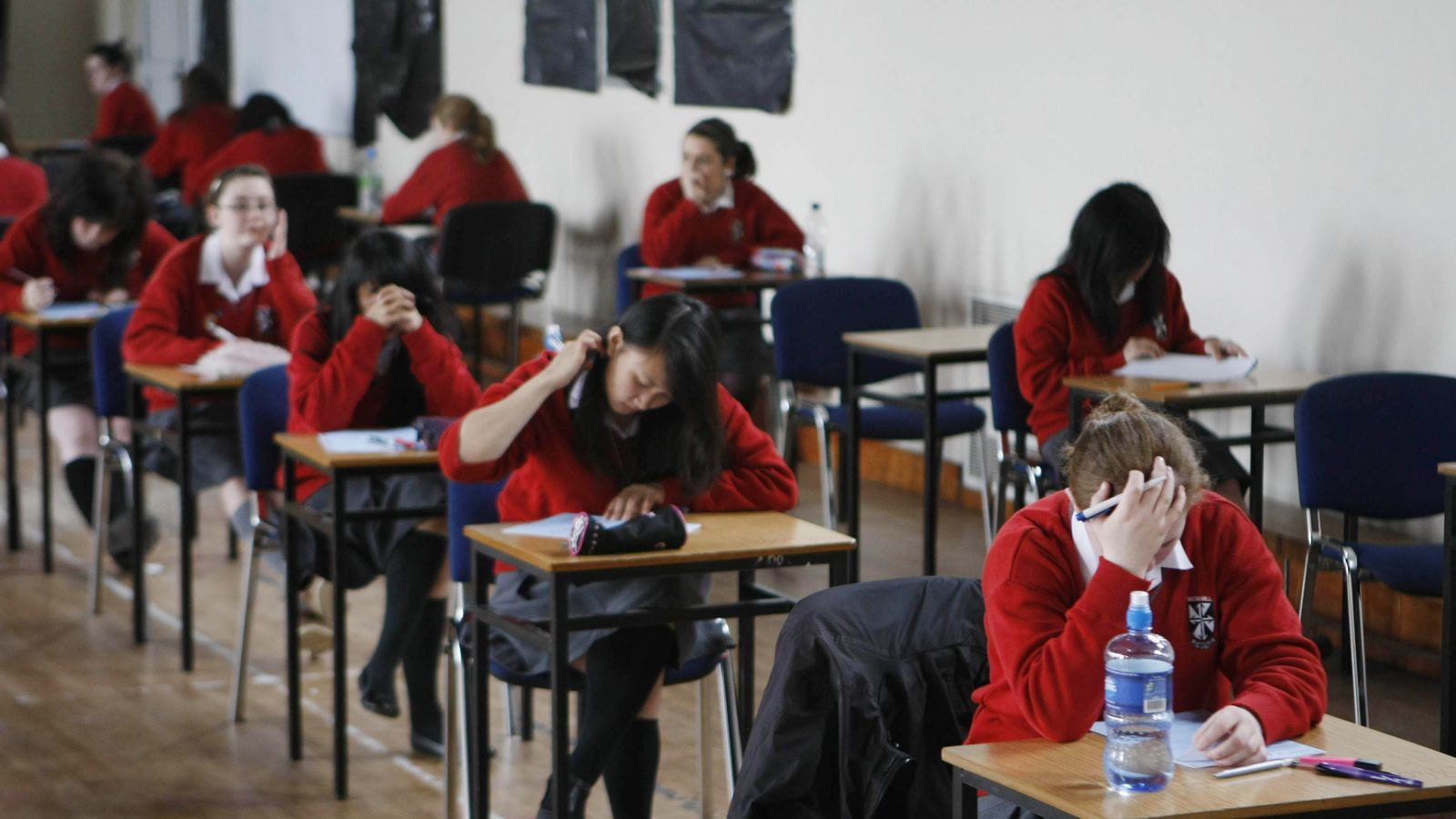Contingency plans will be set out this autumn in case the “unthinkable” happens and exams need to be cancelled again next year due to coronavirus
The interim chair of regulator Ofqual, Ian Bauckham, told MPs work is “quite advanced” should GCSE and A-level exams need pulling for a third consecutive year.
“We are planning a joint consultation with the Department for Education (DfE) again later this autumn to propose a contingency plan should the unthinkable happen and examinations are again disrupted,” he told parliament’s education select committee.
Please use Chrome browser for a more accessible video player
Schools minister Nick Gibb said he did not want exams cancelled but that teachers and schools wanted advance details of “what data they might or might not need to collect should the worst happen”.
The proportion of GCSE and A-level students awarded top grades reached a new high this year after teachers were left to decide on marks when exams had to be scrapped.
Ofqual said it would also detail final plans next month on how 2022’s exams will be delivered.
Proposals in July said pupils in England could get advance notice of the focus of an exam. However, the suggestions went out for consultation and are not yet finalised.
Mr Gibb said grading plans would also be released next month, amid concerns over fairness and grade inflation.
“We want the 2022 cohort to be treated as fairly compared with subsequent cohorts and past cohorts in 2020 and 2021, and that’s something that Ofqual is reflecting on as they decide on what the grading system is going to look like in 2022,” the schools minister said.
Mr Bauckham added that Ofqual had met employers’ organisations this week and that they “held a range of views” on grading.
“There was certainly one view that spoke of the advantages of getting back to 2019 grading standards sooner rather than later,” he said.
“There were other views that said, depending on the way in which the pandemic pans out, it might be that a staged return to 2019 standards would be a better approach.”






















